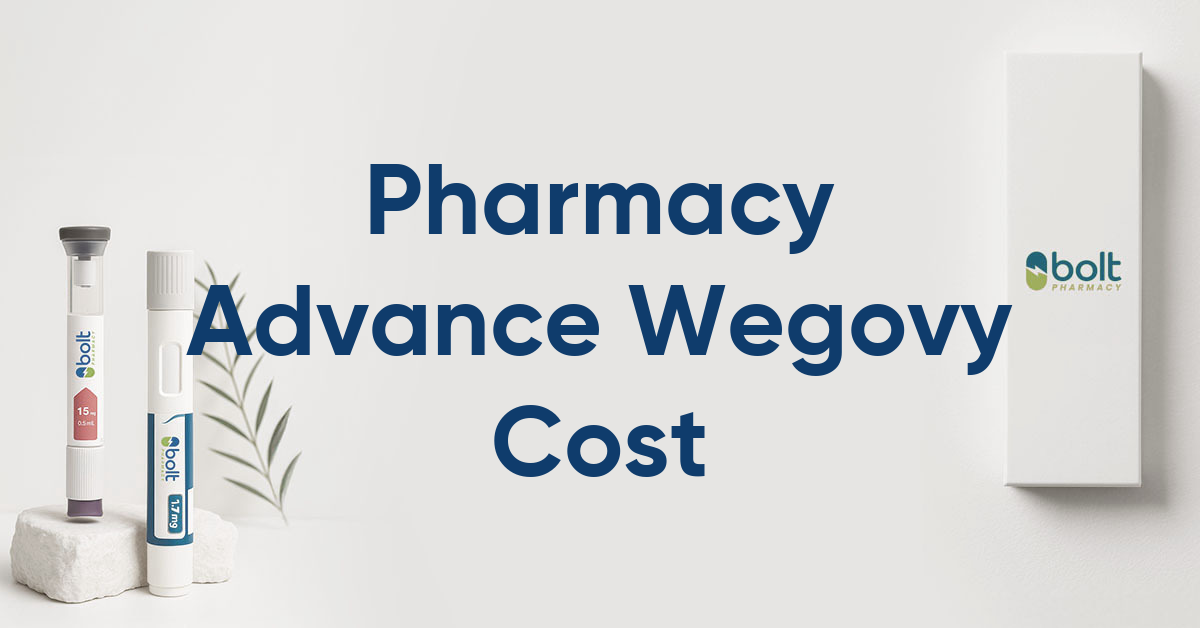Rybelsus (semaglutide) is an oral GLP-1 receptor agonist licensed in the UK for treating type 2 diabetes in adults. Whilst gastrointestinal side effects such as nausea, vomiting, and abdominal discomfort are common with Rybelsus, there is no established direct link between this medication and stomach ulcers. Understanding the difference between expected gastrointestinal symptoms and signs of more serious conditions is essential for patients and healthcare professionals. This article examines the relationship between Rybelsus and stomach problems, including how to manage side effects and when to seek medical advice.
Summary: There is no established direct causal link between Rybelsus and stomach ulcers, though gastrointestinal side effects such as nausea and abdominal discomfort are common.
- Rybelsus is a GLP-1 receptor agonist that slows gastric emptying, which commonly causes nausea, vomiting, and abdominal discomfort, particularly during initial treatment.
- The MHRA-approved Summary of Product Characteristics does not list gastric or duodenal ulcers as recognised adverse reactions to Rybelsus.
- Gradual dose titration (starting at 3 mg for 30 days before increasing) and dietary modifications can significantly reduce gastrointestinal side effects.
- Patients should seek urgent medical attention for severe abdominal pain, blood in vomit or stools, or signs of pancreatitis (persistent pain radiating to the back).
- Those taking NSAIDs, aspirin, or with pre-existing peptic ulcer disease should inform their prescriber before starting Rybelsus.
Table of Contents
What Is Rybelsus and How Does It Work?
Rybelsus (semaglutide) is an oral medication licensed in the UK for the treatment of type 2 diabetes mellitus in adults. It belongs to a class of medicines called glucagon-like peptide-1 (GLP-1) receptor agonists, which work by mimicking the action of a naturally occurring hormone that helps regulate blood sugar levels.
The mechanism of action involves several complementary effects. Rybelsus stimulates insulin secretion from the pancreas when blood glucose levels are elevated, whilst simultaneously suppressing the release of glucagon, a hormone that raises blood sugar. Additionally, it slows gastric emptying—the rate at which food leaves the stomach—which helps reduce post-meal glucose spikes and promotes a feeling of fullness. This delayed gastric emptying is particularly relevant when considering gastrointestinal side effects.
Rybelsus is typically prescribed when diet, exercise, and other diabetes medications have not achieved adequate glycaemic control. It is available in three tablet strengths: 3 mg (used for the first 30 days to improve tolerability only, not for glycaemic control), 7 mg, and 14 mg. The tablets must be taken on an empty stomach with a small amount of water (no more than 120 ml), at least 30 minutes before food or other medications. Tablets should be swallowed whole and must not be split, crushed or chewed. These specific administration requirements are essential for optimal absorption.
Importantly, Rybelsus is not indicated for type 1 diabetes and is not a substitute for insulin. When used alongside sulfonylureas or insulin, there is an increased risk of hypoglycaemia, and dose reductions of these medications may be needed. Caution is advised in patients with severe gastrointestinal disease, including severe gastroparesis. Patients taking levothyroxine should be monitored, as Rybelsus may increase levothyroxine exposure.
The medication has demonstrated efficacy in reducing HbA1c levels and may also contribute to modest weight loss, which can be beneficial for many patients with type 2 diabetes.
Gastrointestinal Side Effects of Rybelsus
Gastrointestinal adverse effects are the most commonly reported side effects associated with Rybelsus, occurring in a significant proportion of patients, particularly during the initial weeks of treatment. According to the Summary of Product Characteristics (SmPC), the most frequent complaints include nausea (very common, affecting ≥1/10 patients), diarrhoea and vomiting (common, affecting ≥1/100 to <1/10 patients), as well as abdominal pain and decreased appetite. These symptoms are directly related to the drug's mechanism of slowing gastric emptying and are typically dose-dependent.
Regarding stomach ulcers specifically, there is no established direct causal link between Rybelsus and peptic ulcer disease in clinical trials or post-marketing surveillance data. The SmPC approved by the MHRA does not list gastric or duodenal ulcers as recognised adverse reactions. However, patients may experience upper abdominal discomfort or dyspepsia that could potentially be confused with ulcer-related pain.
It is important to distinguish between common gastrointestinal side effects and more serious conditions. Nausea is usually most pronounced when initiating therapy or increasing the dose. Abdominal pain typically manifests as generalised discomfort rather than the localised, burning epigastric pain characteristic of peptic ulcers.
Other gastrointestinal effects include constipation (common) and, rarely, acute pancreatitis. Whilst pancreatitis is a serious but uncommon adverse effect, patients should be aware of warning signs such as severe, persistent abdominal pain radiating to the back, often accompanied by vomiting. Patients with a history of pancreatitis should discuss this with their prescriber before starting Rybelsus, as caution is advised in these cases. Treatment should be discontinued if pancreatitis is suspected.
Gallbladder disorders, including cholelithiasis (gallstones) and cholecystitis (gallbladder inflammation), have also been reported with GLP-1 receptor agonists. Patients should be alert to symptoms such as right upper quadrant pain, fever, or jaundice, which warrant urgent medical assessment.
Persistent vomiting or diarrhoea can lead to dehydration and potentially acute kidney injury, so maintaining adequate fluid intake is essential.
Managing Stomach Problems While Taking Rybelsus
Effective management of gastrointestinal symptoms can significantly improve treatment adherence and patient quality of life. Dose titration is the primary strategy recommended to minimise side effects. Rybelsus is typically initiated at 3 mg once daily for 30 days, allowing the body to adjust to the medication before increasing to 7 mg. If further glycaemic control is needed, the dose may be increased to 14 mg after at least another 30 days. This gradual escalation helps reduce the intensity of gastrointestinal symptoms.
If side effects are troublesome, patients may need to extend time at their current dose, step back to a previously tolerated dose, or temporarily pause treatment before re-escalating, always under clinician guidance. During initiation and dose increases, healthcare professionals should reassess doses of any concurrent sulfonylureas or insulin to reduce hypoglycaemia risk.
Dietary modifications can be particularly helpful. Patients are advised to:
-
Eat smaller, more frequent meals rather than large portions
-
Avoid high-fat, greasy, or spicy foods that may exacerbate nausea
-
Stay well hydrated, taking small sips of water throughout the day
-
Avoid lying down immediately after eating
-
Identify and avoid personal trigger foods
Timing and administration are crucial for optimal tolerability. Rybelsus must be taken on an empty stomach with no more than 120 ml of plain water, and patients must wait at least 30 minutes before consuming food, beverages, or other oral medications. Tablets must be swallowed whole and not split, crushed or chewed. Taking the tablet at a consistent time each morning can help establish a routine and may improve gastrointestinal tolerance.
For patients experiencing persistent nausea, anti-emetic medications may occasionally be considered for short-term use, though this should be discussed with a GP or diabetes specialist who can weigh the risks and benefits. Simple measures such as ginger tea or eating plain crackers may provide symptomatic relief for mild nausea.
If gastrointestinal symptoms are severe or persistent beyond the first few weeks, it is important to consult with the prescribing clinician. In some cases, temporarily reducing the dose or considering alternative diabetes medications may be appropriate. Patients should not stop taking Rybelsus without medical advice, except in cases of suspected pancreatitis or severe allergic reaction, when they should stop and seek urgent medical care.
When to Seek Medical Advice About Stomach Symptoms
Whilst mild gastrointestinal symptoms are expected with Rybelsus, certain warning signs warrant prompt medical attention. Patients should contact their GP or healthcare provider if they experience:
-
Severe or persistent abdominal pain, particularly if it is constant, worsening, or radiating to the back (which may indicate pancreatitis)
-
Right upper quadrant pain, fever, or jaundice (yellowing of skin/eyes), which may suggest gallbladder problems
-
Vomiting that prevents adequate fluid or medication intake, leading to dehydration
-
Blood in vomit or stools (which may appear as black, tarry stools or frank blood)
-
Severe, persistent heartburn or difficulty swallowing
-
Unexplained weight loss beyond what is expected from diabetes management
-
Signs of dehydration, including dark urine, dizziness, or reduced urination
Symptoms suggestive of peptic ulcer disease—such as burning epigastric pain that occurs between meals or at night, is relieved by eating or antacids, and recurs over days or weeks—should be evaluated by a healthcare professional. Whilst there is no official link between Rybelsus and stomach ulcers, patients with pre-existing ulcer disease or those taking medications that increase ulcer risk (such as NSAIDs, aspirin, or corticosteroids) should inform their prescriber.
Patients should seek immediate medical attention (via 999 or A&E) if they experience:
-
Sudden, severe abdominal pain
-
Vomiting blood or material that looks like coffee grounds
-
Passing black, tarry, or bloody stools
-
Signs of severe allergic reaction (facial swelling, difficulty breathing, severe rash)
For urgent but non-emergency concerns outside of GP hours, NHS 111 can provide advice. For routine concerns about ongoing gastrointestinal symptoms that are troublesome but not severe, patients should schedule an appointment with their GP or diabetes nurse specialist. NICE guidance (NG28) recommends regular monitoring of patients on GLP-1 receptor agonists, and any persistent side effects should be documented and addressed during these reviews.
Persistent dysphagia (difficulty swallowing) or unexplained weight loss with upper abdominal pain may warrant urgent referral according to NICE suspected cancer referral guidelines (NG12).
Patients are encouraged to report any suspected side effects to the MHRA Yellow Card Scheme (yellowcard.mhra.gov.uk or via the Yellow Card app).
Frequently Asked Questions
Can Rybelsus cause stomach ulcers?
There is no established direct causal link between Rybelsus and peptic ulcer disease in clinical trials or post-marketing surveillance. The MHRA-approved product information does not list gastric or duodenal ulcers as recognised adverse reactions, though patients may experience upper abdominal discomfort related to common gastrointestinal side effects.
What are the most common stomach side effects of Rybelsus?
The most common gastrointestinal side effects include nausea (very common, affecting ≥1/10 patients), diarrhoea, vomiting, abdominal pain, and decreased appetite. These symptoms are typically most pronounced during the first few weeks of treatment or when increasing the dose, and usually improve over time.
When should I seek medical advice about stomach problems whilst taking Rybelsus?
Seek urgent medical attention for severe or persistent abdominal pain (especially if radiating to the back), blood in vomit or stools, right upper quadrant pain with fever or jaundice, persistent vomiting causing dehydration, or difficulty swallowing. Contact your GP for troublesome symptoms that persist beyond the initial weeks of treatment.
The health-related content published on this site is based on credible scientific sources and is periodically reviewed to ensure accuracy and relevance. Although we aim to reflect the most current medical knowledge, the material is meant for general education and awareness only.
The information on this site is not a substitute for professional medical advice. For any health concerns, please speak with a qualified medical professional. By using this information, you acknowledge responsibility for any decisions made and understand we are not liable for any consequences that may result.
Heading 1
Heading 2
Heading 3
Heading 4
Heading 5
Heading 6
Lorem ipsum dolor sit amet, consectetur adipiscing elit, sed do eiusmod tempor incididunt ut labore et dolore magna aliqua. Ut enim ad minim veniam, quis nostrud exercitation ullamco laboris nisi ut aliquip ex ea commodo consequat. Duis aute irure dolor in reprehenderit in voluptate velit esse cillum dolore eu fugiat nulla pariatur.
Block quote
Ordered list
- Item 1
- Item 2
- Item 3
Unordered list
- Item A
- Item B
- Item C
Bold text
Emphasis
Superscript
Subscript












